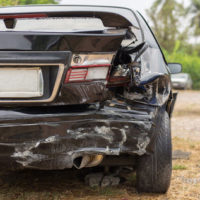If A Rented Moving Truck Hits Me, Can I Sue The Company?

In many parts of the country, no one relocates from late fall to early spring. The weather is too bad. But here in Florida, winters are generally very mild. So, the moving season continues unabated. If anything, the relocation numbers might actually increase, because moving in the winter is cheaper than moving in the summer. Do-it-yourself moves save even more money.
When many people rent moving trucks, they buy little or no insurance. That’s a significant risk.
A standard, fully-loaded U-Haul moving truck weighs about 30,000 pounds. So, in a collision, the injuries are often severe. The risk of a collision is high as well. Many large moving trucks are difficult to operate, and many drivers are distracted by their GPS navigation systems.
These cases are factually and legally complex, as outlined below.
Establishing Liability in a Port St. Lucie Moving Truck Crash Claim
Some vehicle collisions really are accidents. For the most part, no one can do anything to prevent lightning strikes, tree falls, violent wind gusts, and so on. But over 90 percent of the vehicle collisions in Port St. Lucie involve one of the following:
- Negligence: Essentially, negligence is a lack of care. Drivers have a duty to follow the rules of the road and watch out for other drivers. If they violate this duty and cause injury, they may be legally responsible for damages. As mentioned earlier, many people who drive moving trucks do not focus 100 percent on driving. That’s usually a clear breach of duty, even if the distracting behavior is technically legal.
- Negligence Per Se: Sometimes, a statute establishes the standard of care. Most tortfeasors are liable for damages as a matter of law if they violate a safety law, like the distracted driving law, and that violation substantially causes injury. In some cases, negligence per se is only a presumption of liability.
In both these cases, victim/plaintiffs must establish legal responsibility by a preponderance of the evidence (more likely than not). So, there must be substantial evidence of liability.
Medical records, witness statements, and the police accident report often makes up the bulk of this evidence. Other items include the truck’s Event Data Recorder. Most vehicles have EDRs. These gadgets measure and record things like vehicle speed and brake application. So, the EDR is often critical in Port St. Lucie truck crash cases.
Getting Around the Graves Amendment in Florida
Even if the evidence clearly points toward liability, there may be a problem. As mentioned, the individual tortfeasor (negligent driver) often only has minimal insurance. Holding the vehicle owner liable for damages may be a problem, because of the Graves Amendment.
This add-on to a federal transportation bill purports to immunize owners who lease their vehicles to people that cause car crashes. But the Graves Amendment has a couple of key flaws. The biggest ones are:
- Trade or Business: Immunity does not apply to a company that is not in the trade or business of renting moving trucks. Significantly, most of these vehicle owners are moving companies. Vehicle rentals may only comprise a portion of their income.
- Not Otherwise Negligent: Arguably, it is the industry standard to verify that the lessee’s drivers’ licenses is legally valid. Owners that fail to do so may be negligent.
If the Graves Amendment does not apply, the negligent entrustment rule may apply. If it does, the vehicle owner may be legally responsible for economic damages, noneconomic damages, and punitive damages, if any.
Team Up with Assertive Lawyers
If a rented moving truck hits you, the company may be responsible for damages. For a free consultation with an experienced personal injury attorney in Port St. Lucie, contact Eighmie Law Firm, P.A. We do not charge upfront legal fees in negligence cases.
Resource:
uhaul.com/Truck-RMoving Truckrentals/26ft-Moving-Truck/


